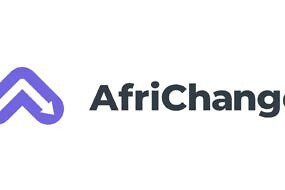Crypto startups in Nigeria—Quidax, Yellow Card, and Busha—have started promoting their business-to-business (B2B) crypto payment services more than ever. Their recent posts on social media highlight a strong push toward helping businesses and fintechs integrate crypto payments into their platforms.
While Quidax and Yellow Card are running paid ads for their B2B APIs (application programming interfaces), Busha has mainly promoted its B2B offerings organically. These APIs allow fintechs to offer crypto services like payments, trading, and wallet creation without building these tools from scratch or facing regulatory challenges.
Crypto Startups Target African Fintechs
These crypto companies have long supported businesses behind the scenes, but now they are shining a spotlight on it. The shift comes as many African fintechs want to offer crypto payment options, especially using stablecoins, without dealing with complex laws or tech.
Fintechs see B2B services as a more stable and scalable way to grow compared to retail. Startups like Flutterwave, Chipper Cash, Onafriq, Grey, and Eversend have already added stablecoin rails to help users send money across borders and handle foreign exchange issues.
Tochy Emereole, the marketing lead at Quidax API Business, said there’s a shortage of blockchain developers in Nigeria. Although Nigeria has more Web3 developers than other African countries, they make up just 4% of global talent, according to a Hashed Emergent report.
Building apps in Web3 requires special skills like smart contract development and blockchain programming, which many local engineers lack. This skill gap makes it hard for fintechs to build Web3 tools from the ground up.
APIs Make Crypto Integration Easy for Fintechs
Quidax, Yellow Card, and Busha offer plug-and-play APIs that allow developers to quickly add crypto features to their apps. These APIs let fintechs:
- Build crypto wallets
- Add on-ramp and off-ramp services (crypto-to-naira and naira-to-crypto)
- Offer stablecoin payments without writing blockchain code
Instead of building everything themselves, fintechs only need to call the APIs, handle responses, and test them in sandbox environments. This saves time and cost while keeping the user experience and branding in the hands of the fintech.
Quidax Offers Free Integration, Charges Per Transaction
Startups that use Quidax’s API don’t pay for integration. Instead, Quidax charges a fee for each transaction after the platform goes live.
Emmanuel Onyo, CEO of Azawire, a crypto startup still in beta, confirmed this model. He said businesses pay based on the services they use, the number of customers, and the transaction volume.
Quidax’s flagship B2B product is Ramp by Quidax, an API suite that powers wallets, exchanges, and conversion services. They are also testing Ramp by Telegram, which enables merchant payments on the Telegram app.
Liquidity Is a Major Advantage
Crypto exchanges need liquidity pools to process user trades instantly. Without enough liquidity, users experience delays and failed transactions.
Quidax, Busha, and Yellow Card provide liquidity support as part of their B2B services. Quidax claims to offer unlimited liquidity, with a strong mix of market makers and takers to keep the system running smoothly.
Yellow Card operates in 20 African countries and holds licenses in South Africa and Botswana. Its API allows businesses to offer crypto payments or access crypto liquidity for their users. In 2024, Yellow Card even partnered with Coinbase, a major US crypto exchange.
Sean van Kerckhoven, director of partnerships at Yellow Card, said companies like Coinbase want to serve African users but face regulatory barriers. Yellow Card helps them provide services without setting up local offices or bank accounts.
Although Quidax, Yellow Card, and Busha didn’t reveal the names of the businesses using their APIs, Quidax confirmed that business clients make up a large portion of its user base.
By offering easy-to-use APIs, stablecoin rails, and liquidity support, these crypto startups are positioning themselves as key technology providers for Africa’s next wave of digital finance.













One reply on “Quidax, Yellow Card, Busha Now Focus on B2B Crypto Payments”
[…] a top crypto platform, has launched crypto staking in Nigeria. This move makes Luno the first active platform in the […]